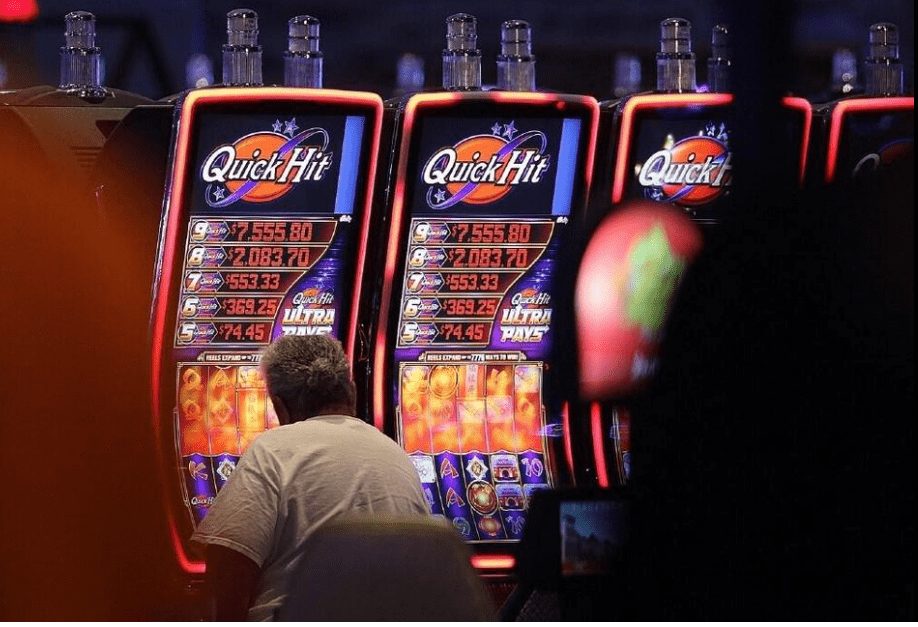COVID-19 cost the U.S. commercial casino industry 27% of its normal operating days during 2020, plummeting overall gaming revenues to their lowest figure in 17 years.
A study released Wednesday by the American Gaming Association said the mandated shutdowns that began in late March and lasted into the summer were the primary reason gaming revenues from 30 commercial casino markets declined 31.3% to just under $30 billion.
The figure marked the casino industry’s first year-over-year decline since 2014 and the lowest overall total since 2003. In 2019, nationwide gaming revenue was a record $43.7 billion.
The raw number decrease was a surprise to absolutely no one.
“COVID-19 devastated our business and the employees and communities across the country that rely on casino gaming’s success,” said AGA CEO Bill Miller.
Nearly 1,000 commercial and tribal casinos in 43 states were ordered closed by governments and tribal authorities in an effort to halt the spreading pandemic. Toward the end of the year, governors in Illinois, Michigan, Rhode Island, and Pennsylvania ordered second closures due to a resurgence of COVID-19. Along the Mississippi and Louisiana Gulf Coasts, several markets closed casinos in late summer and early fall due to hurricanes.
The AGA study found that casinos were opened – albeit operating under capacity limitations and COVID-19 health and safety guidelines – for an estimated 124,882 days in 2020, a decline of 27% from the potential 170,484 operating days had casinos not closed.
The shutdowns and operating limitations decimated non-gaming businesses associated with the casino industry, including restaurants, live entertainment, convention and meeting business, and tourism activities. In Las Vegas, visitation fell 52% in 2020, and convention attendance was down 74%.
“These numbers show the economic realities of COVID-19,” Miller said. “Hospitality and travel have been among the sectors hardest hit by the pandemic.”
A positive sign
There was, however, some light at the end of the tunnel.
Sports betting expanded to 20 states and Washington D.C. by the end of the year with the market collecting $1.53 billion in revenues, a nearly 69% increase from 2019. Online casinos expanded into West Virginia and revenues from the activity jumped almost 200% to $1.55 billion. Much of the increase came from New Jersey and Pennsylvania, where closed commercial casinos sent customers to online opportunities during April and May.
Sports betting is expected to be added to six-to-12 states in 2021 while Michigan launched igaming and mobile sports betting in January.
AGA Senior Vice President Casey Clark said online casinos – which are currently limited to a half dozen states – could be an area primed for expansion.
“The opportunity is there to create a legal market, with the right protections for (responsible gaming) and (anti-money laundering) that would provide a viable alternative to the predatory illegal market,” Clark said.
On Tuesday, Boyd Gaming leadership said it would open an online casino site in Pennsylvania with the intention of expanding to other states. The company operates 28 casinos in 10 states.
Clark also noted that the fourth quarter produced almost $9.2 billion in gaming revenue, an increase of 1.7% from the third quarter. Also, January’s gaming revenue figures in several states were showing positive trends.
Federal help for gaming
Miller said the gaming industry is seeking to be included in the financial aid portions of the $1.9 trillion COVID-19 relief package currently under consideration on Capitol Hill.
Also, two other pieces of federal legislation – a $2.25 billion measure to support tourism and travel markets, and a bill that offers tax credits and other incentives to boost the struggling nationwide convention and tradeshow market – would help in the gaming industry’s recovery.
“I am encouraged by recent bipartisan momentum on Capitol Hill to support these industries, which are crucial to our nation’s full economic recovery,” Miller said, adding it underscores “the importance of targeted federal relief and ramped-up vaccine distribution to accelerate gaming’s recovery in 2021.”
New technology
Operating through the 2020 pandemic may have sped up the movement toward cashless gaming technology and digital payment solutions, such as mobile wallets. The AGA advocated the use of the platforms on gaming floors, saying the industry has been one of the last to embrace the technology.
Most of the major gaming equipment providers are in various phases of development or testing of mobile wallet technology. Tribal casinos in Florida and Oklahoma currently serve as test markets. Boyd launched a mobile wallet in Indiana and Nevada and is planning to bring the product to other states.
“This might be one of the bright spots in what otherwise was a devastating year,” Clark said. “Progressive regulators understand that digital payment technology aligns with knowing your customer, provides a strong (anti-money laundering) and (responsible gaming) component.”
Last year, the AGA found nearly 60% of casino-goers are less likely to use cash in their everyday lives because of COVID-19. On the casino floor, 54% of customers indicate they would be likely to utilize a digital or contactless payment option if available.
Clark said the technology could be part of the overall effort to help return customers to casino properties.
Howard Stutz is the executive editor of CDC Gaming. He can be reached at hstutz@cdcgaming.com. Follow @howardstutz on Twitter.





